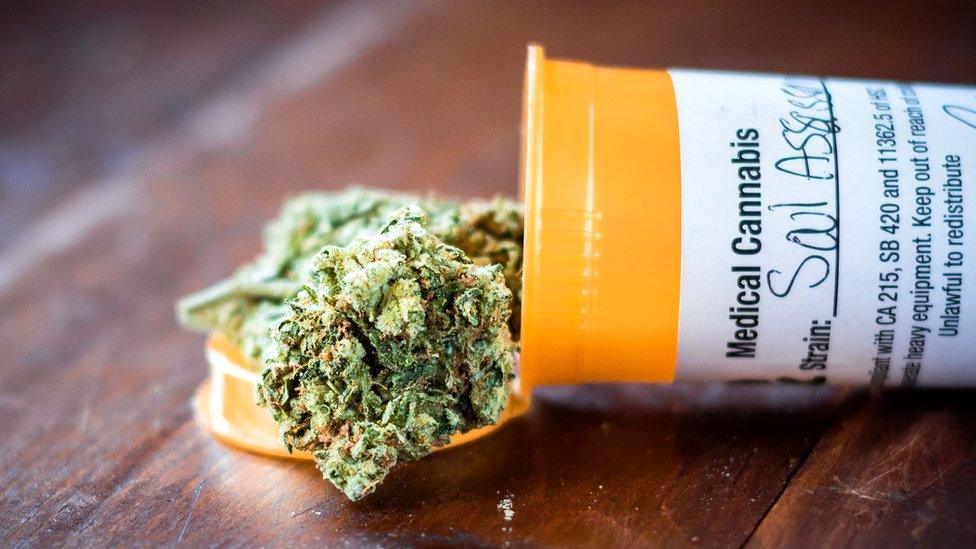'I smuggled cannabis oil to help my son'
- Published
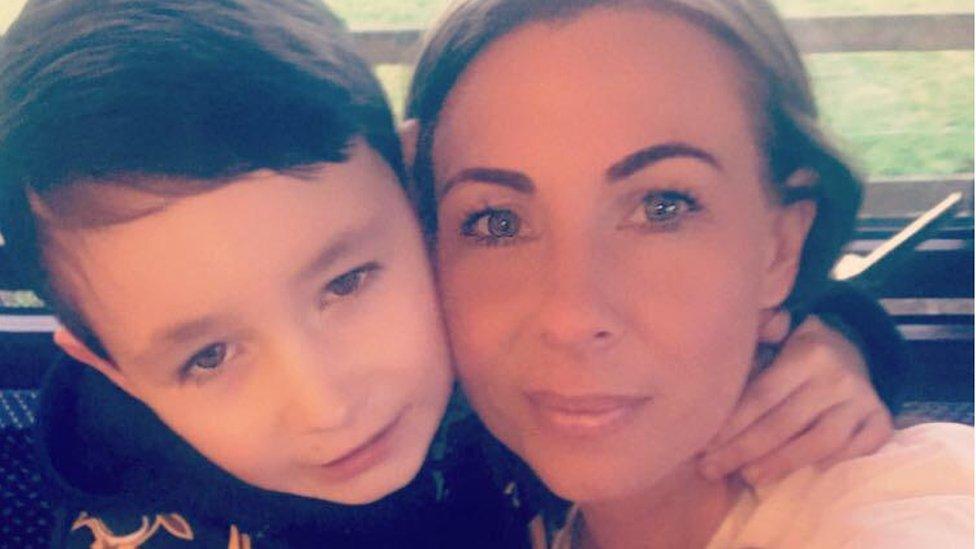
Lisa Quarrell said it was heart-breaking to watch Cole have a seizure
Former police officer Lisa Quarrell never imagined she would break the law - but this year she began smuggling a cannabis product into Scotland.
Lisa, from East Kilbride, travelled to the Netherlands to bring back a medical cannabis oil to give to her six-year-old son Cole, who has severe epilepsy.
Cole has had brain surgery and tried many anti-epileptic drugs, but nothing was helping his seizures.
Lisa has spent thousands of pounds to bring the drug back illegally.
She told BBC Disclosure: "I'd sell my house. I would. I can't let him get sicker. I need to get him better. There's nothing else for it."
But now her smuggling days could be behind her after Cole was prescribed cannabis oil legally by a private London hospital.
'The most heart-breaking thing to watch'
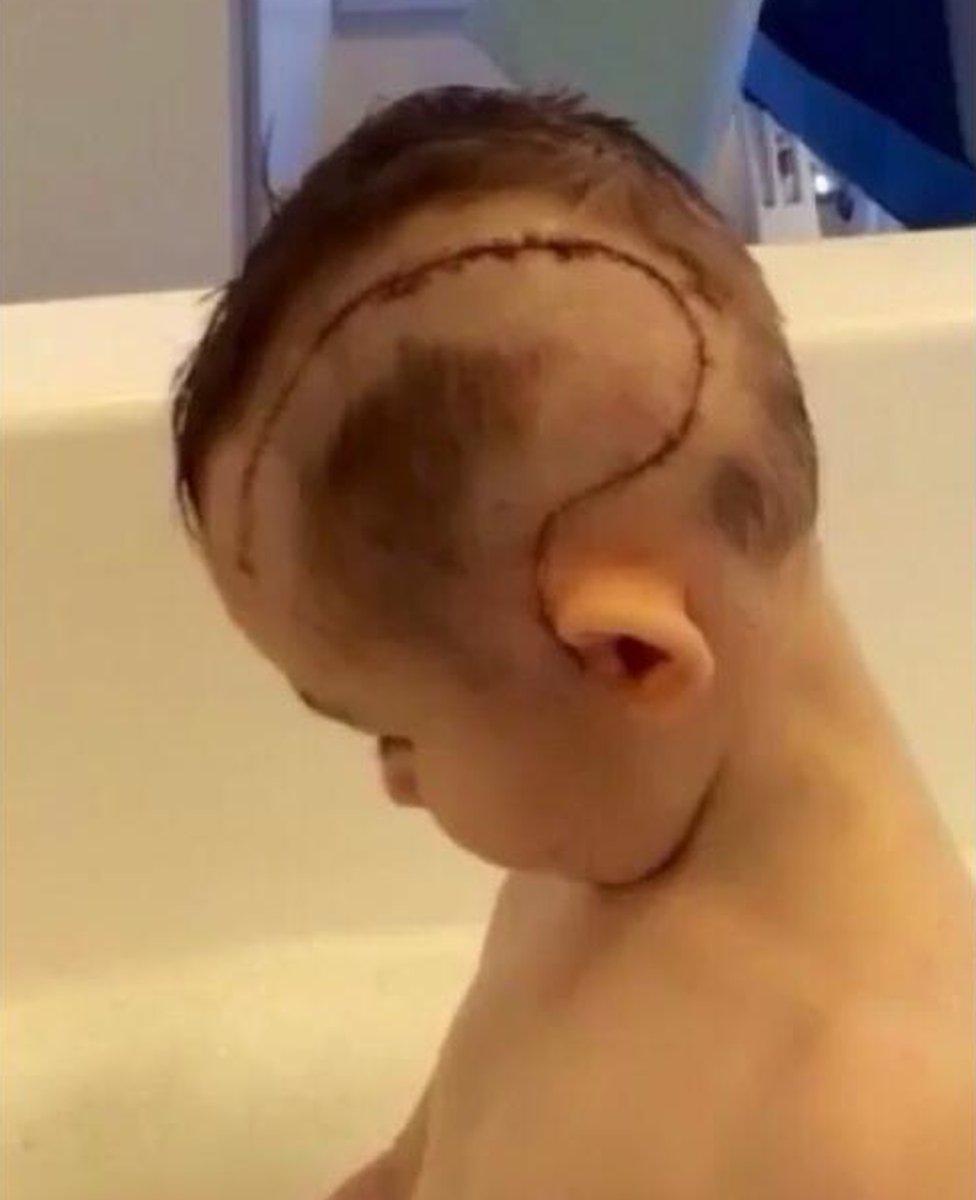
Cole had brain surgery at the age of two to try to stop the seizures

Lisa, 38, left policing five years ago to look after Cole, who was diagnosed with severe epilepsy as a baby.
A bad day for Cole could mean up to 16 seizures, most of which would happen at night.
She said: "He'll convulse, he'll click in his mouth, his eyes will roll back, he'll drop to the floor with no notice.
"It's the most heart-breaking thing to watch. Two-and-a-half minutes has never felt so long as when you're watching your child take a seizure.
"Cole had never had a dream because he didn't get to sleep long enough or deep enough to ever have a dream."
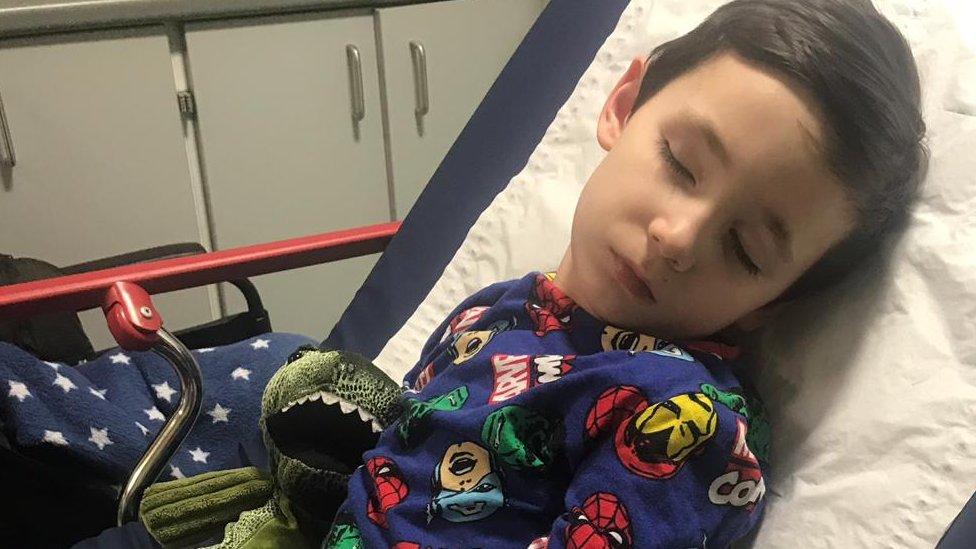
Cole missed eight weeks of school earlier this year due to his seizures
Cole missed more than eight weeks of school earlier this year because of the number of seizures he was having.
In March, he was fitted for a wheelchair because his condition had deteriorated so much.
After hearing the stories of children like Alfie Dingley and Sophia Gibson, who both take a medical cannabis product available in the Netherlands, Lisa decided to go there to find a GP who would prescribe the drug.
The former policewoman then started bringing the drug back to Scotland.
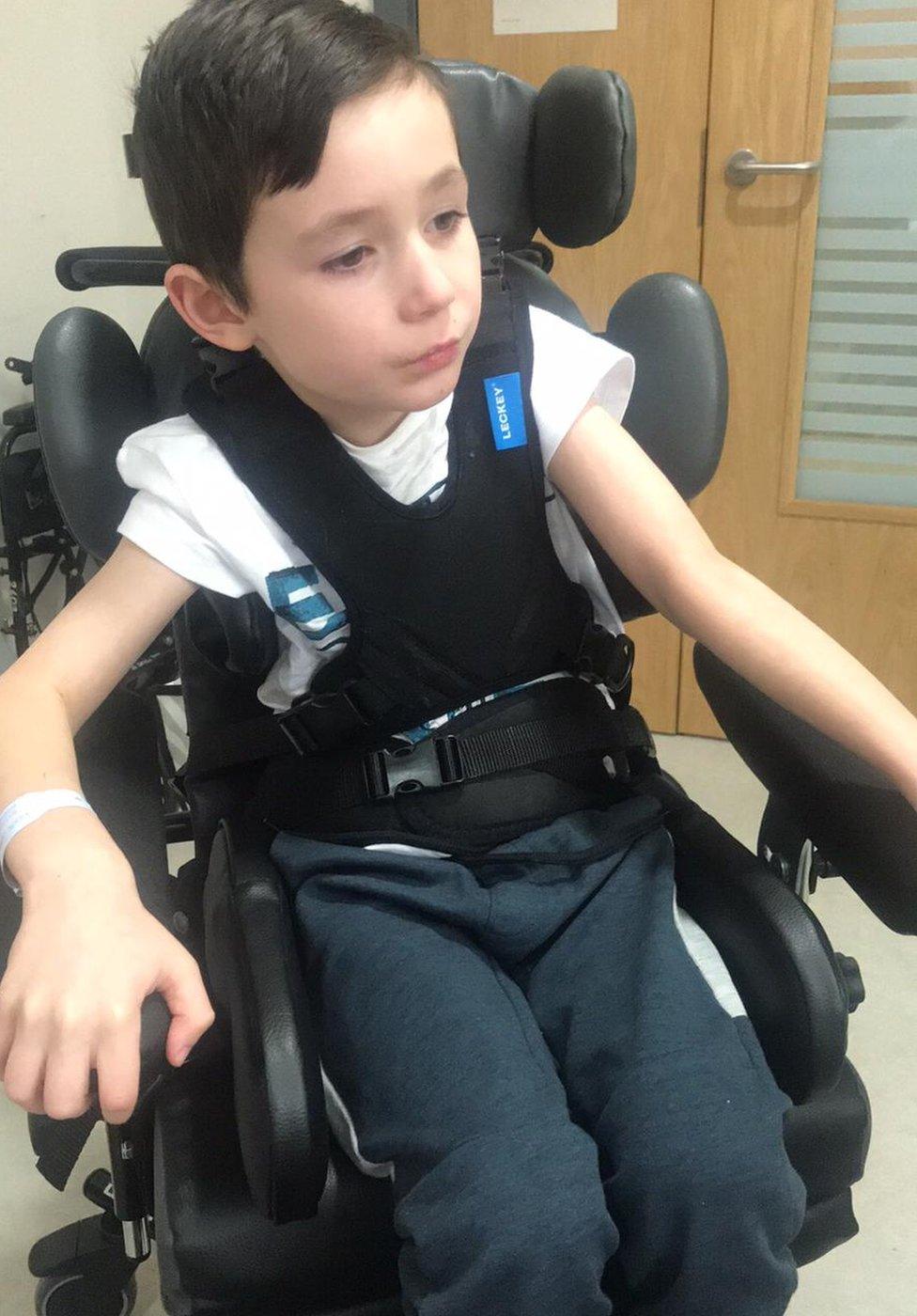
Cole was fitted for a wheelchair because his condition had deteriorated

She said: "I've just walked through the airport and seen police officers I used to work with, knowing that I'm about to pick up my baggage that's got an illegal drug in it, which is just so far beyond my imagination I can't tell you."
Lisa has been fundraising and travelling to the Netherlands with Karen Gray, 44, from Edinburgh.
Karen is bringing the same product back for her six-year-old son, Murray, who has a rare and severe form of epilepsy: Doose Syndrome.
Like Cole, Murray has seizures. During his worst phase, he was having 12 a day.
As a result, he was put on strong medication which Karen said led to him lying in a "vegetative state" in hospital.
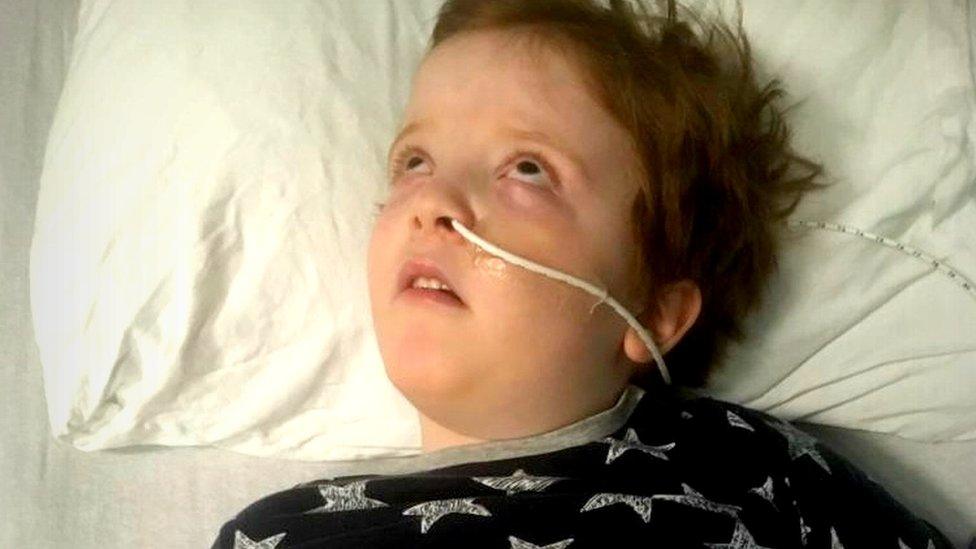
Murray has a rare and severe form of epilepsy
She said: "He can be awake but he's probably not aware that anyone's there. He can't swallow, he can't eat, he can't talk, he can't move. He can't do anything."
In January 2019, Murray's condition got worse and he was admitted to hospital, where he spent most of his time until May.
Karen said: "I honestly thought that's it, he's going to die. How can anybody survive this?"
Although Murray spent most of this year in hospital, he is now back in school for a few hours a day.
Karen, like Lisa, is convinced this change is due to the product they have been bringing in from the Netherlands since March.
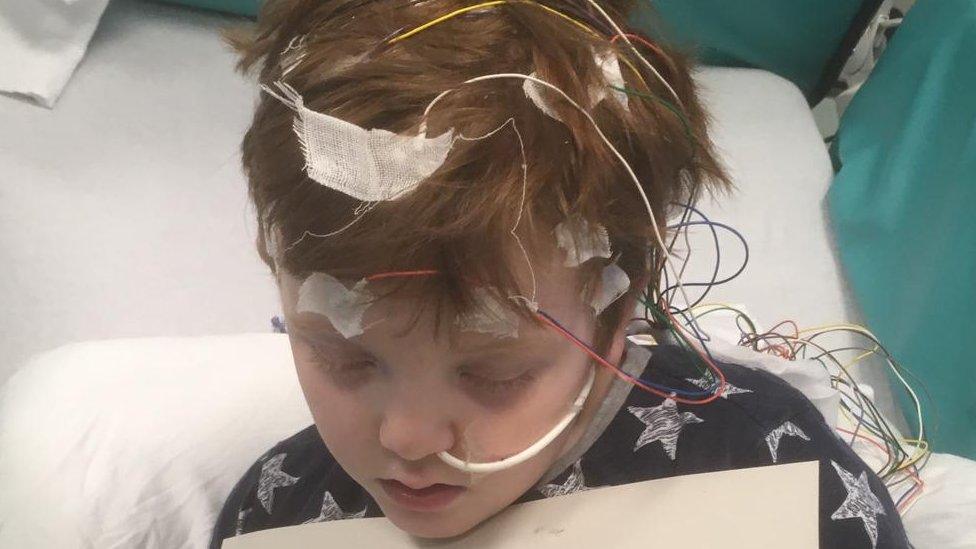
Murray has spent most of the year in hospital
The health board responsible for Murray's care said it could not discuss his case.
But speaking more generally about what might happen if parents admit to dosing their own children, Tracey Gillies, the medical director for NHS Lothian, said: "The hospital has to take steps to make sure that the child is looked after as safely as possible and discuss that with others who have a relevant interest in safeguarding children."
She said the hospital could not turn a blind eye, adding: "There would be a child protection issue to be consider."
According to the Home Office, it is illegal to bring cannabis oil into the country without an import licence.
The product
Can cannabis treatments save my child?
Bedrolite is a medical cannabis oil made by Bedrocan, which is the sole supplier of medicinal cannabis to the Dutch government's Office for Medicinal Cannabis.
The oil contains two key active compounds in cannabis for medical use: THC, which is psychoactive and gives a feeling of being "high", and CBD, which does not.
Until last year, medical cannabis products with THC were illegal in the UK.
But on 1 November 2018, all cannabis medicines were moved from Schedule 1 of the Misuse of Drugs Regulations to Schedule 2, external, to recognise there is evidence of benefit for some patients.
Legally, doctors can prescribe products like Bedrolite, which contain the psychoactive component THC.
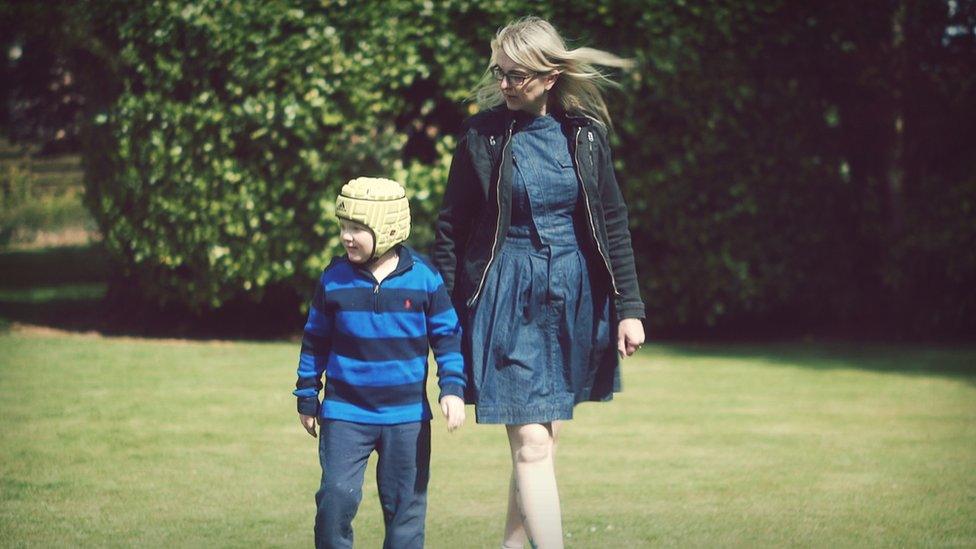
Karen Grey says she has seen a huge improvement in son Murray
There is a CBD-only drug called Epidiolex, which is available in the UK under a compassionate access programme run by its manufacturer GWPharma.
Karen, whose son Murray tried Epidiolex, said: "It was absolutely brilliant but after three months it just stopped working for some reason."
Bedrolite is 9% CBD and less than 1% THC.
Since Murray and Cole started taking cannabis oil with THC in March, Karen and Lisa report seeing a huge improvement. They say both boys have been having fewer seizures and both are out both out of hospital and back in school.
Is it a miracle drug?
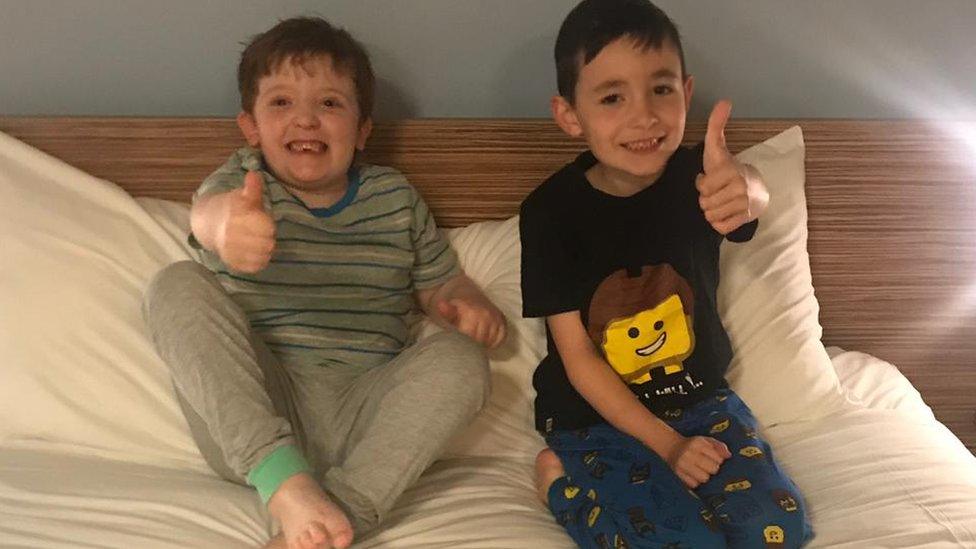
Murray and Cole's parents are convinced the cannabis oil product is helping their boys
Despite the law change, Karen and Lisa have been unable to get a prescription on the NHS for the drug they are convinced is helping their boys.
After the law was changed, the British Paediatric Neurology Association (BPNA) issued guidelines to its members stating that there is "no high quality evidence" to support the use of THC - the psychoactive compound in Bedrolite.
Dr Finbar O'Callaghan from the BPNA told Disclosure: "The NHS are only going to pay for products where there's evidence of efficacy and safety."
He added: "Clinicians are only going to feel confident about prescribing medicines which they know to be efficacious and safe for their patients and that evidence wasn't there and so there's going to be a reluctance on behalf of the clinicians."
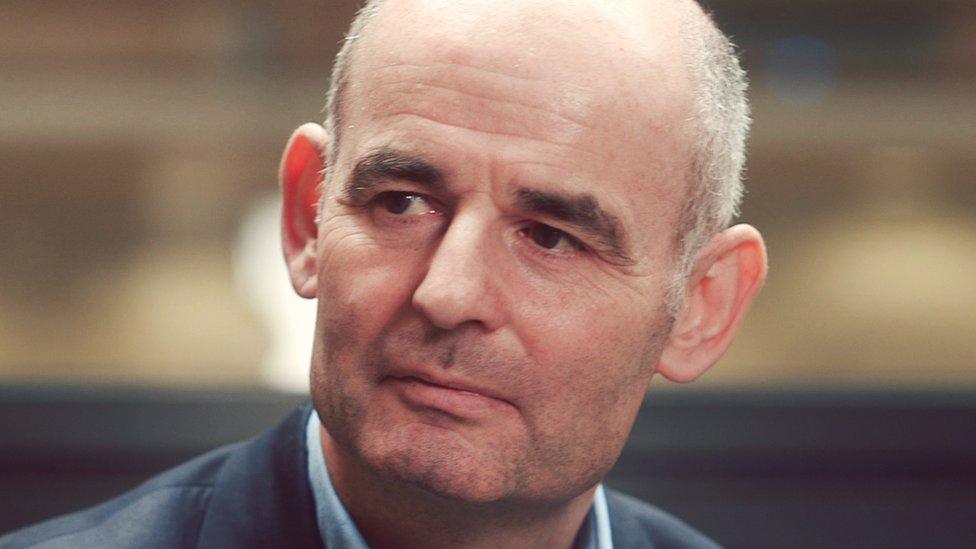
Dr Finbar O'Callaghan said doctors need to know medicines are "efficacious and safe"
But not all doctors necessarily agree this is the best way forward.
Dr Bláthnaid McCoy is a paediatric neurologist based in Toronto.
She treats some of her patients with medical cannabis products that contain THC.
Dr McCoy said she did not think medical cannabis was a miracle drug but she did believe it should be considered as an option.
She said: "I think it's a very complicated drug though. It isn't a single drug and we need more research to better understand exactly what should be in there."
Public funds are now being put into trialling more cannabis medicines - and new Nice guidelines are due in October 2019.
Both the UK and the Scottish government have said that, as things stand, whether or not to write a prescription for medical cannabis will remain a "clinical decision".
Private prescriptions
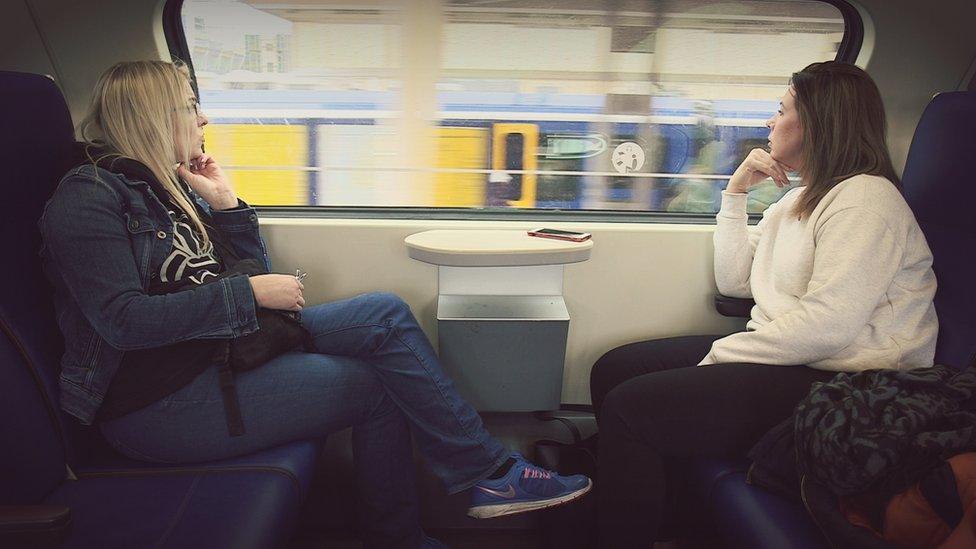
Karen and Lisa have been back and forth to Holland three times this year
Karen and Lisa have been back and forth to the Netherlands three times this year at a cost, they estimate, of almost £15,000 between them.
But their trips might be coming to an end.
Last week, Murray and Cole were given a private prescription at the Portland Hospital in London.
Lisa and Karen were paying £160 per bottle of oil in the Netherlands. That same bottle will now cost £550 because the medicine has to be specially imported.
For Lisa and Karen, these prescriptions represent a victory.
Lisa added: "For the first time a medical professional that deals with paediatric neurology has agreed that what I'm doing for Cole is the right thing and that in itself is huge."

Previous Disclosure investigations include:
- Published12 June 2019
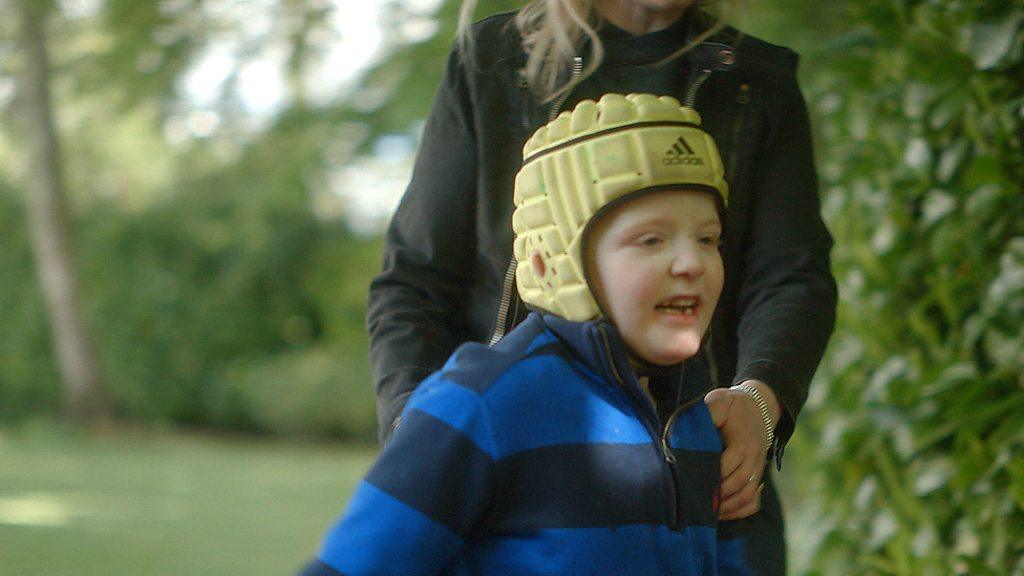
- Published7 June 2019
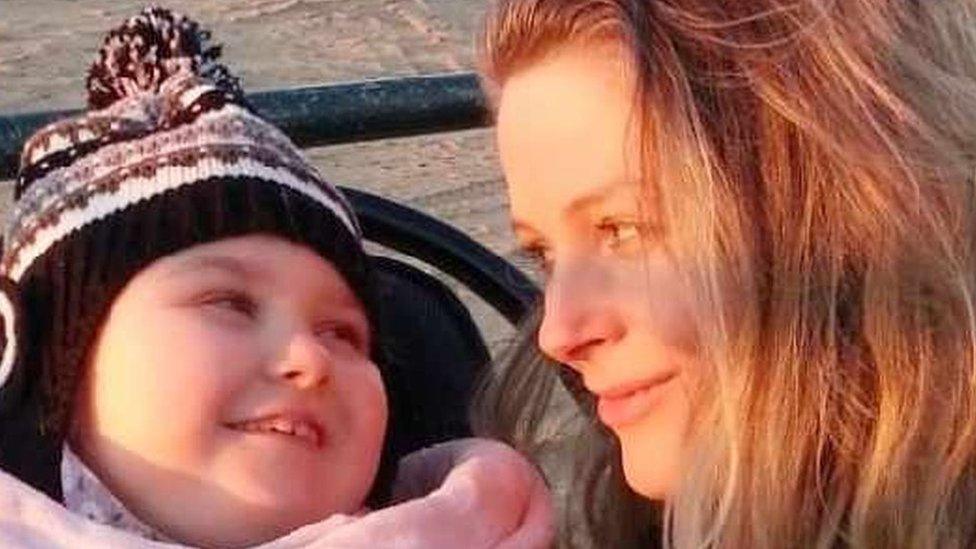
- Published16 February 2019
